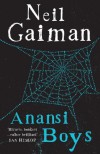William's Book Blog
Mostly book reviews. Very rarely I'll allow William Campbell Powell (author) to write a blog entry on publishing activity, but he's under orders to keep that stuff over on his Facebook page and on http://williamcampbellpowell.com
Currently reading
More than Robinson Crusoe in Space?

It would be easy to dismiss this as a re-telling of Robinson Crusoe, with Más a Tierra substituted by Mars.
A disaster, abandonment, and an arduous journey with many threats along the way. Check. Using state of the art knowledge to get out of trouble. Check. Man Friday. Nope. Not even Alien Friday. Well, that's a relief.
It's much more like Apollo 13. There's that same calmness, the belief that if enough scientists and engineers pore over the specs, then ingenuity and duck tape (gaffa tape if you're a Brit) will win through.
The protagonist is called (Mark) Watney. For a Brit listener, that has an instant resonance with the most dreadful beer in the British Isles in the 1970s. I'll call my next protagonist Budweiser...
I haven't checked it out, but there's a relentless arithmetic throughout the narrative that says "Weir has checked his facts. Weir has checked his facts..." For a while I followed it in my head - yes, I can do complex mental arithmetic while driving, but it's really distracting and arguably more dangerous in commute-time traffic than if I were on Mars, so after a while I stopped cross-checking and just took the calculations on faith. It did get wearing after a while, and there was a smugness that began to creep through.
I don't think it was the narrator - R.C.Bray did an entirely solid job. On that subject, I pay my compliments to the quality of his accents, especially the Indian Venkat Kapoor back on earth, which avoided the trap of parody.
It's perfect for film - and I note that it is indeed being released as a film in Nov 2015 - being composed of a whole series of deadly crises, lucky escapes and scientific rabbit-out-of-hat ingenuity. Add a sprinkling of nerds, mavericks and heroic astronauts, and it'll have every college graduate queuing to join Nasa.
Am I getting jaded? There was a relentless cyclical nature to the narrative that robbed the narrative of spontaneity. Enough breadcrumbs that most of the disasters and resolutions were well-telegraphed. So I knew that there would be another disaster around the corner. Equally I knew that there would be another resolution.
Until the final ascent. That strained my belief past the breaking point. Nobody in Nasa ran a simulation of the ascent? Really? They just crossed their fingers and hoped? Anyway, at that point I just let the narrative roll over my head to the end.
On the plus side, I did learn some practical science (on the assumption that the rest of Weir's research was on a par with his arithmetic) along the way, which is always a good thing.
Will I read another novel by Andy Weir? I don't rule it out. A bit more ruthlessness with the arithmetic, a little less repetition, and a little less roller-coasting and what remains is a captivating showpiece of human ingenuity, credible characterisation and well-crafted dialogue. I'll keep an open mind and see what he writes next. I won't run a simulation though - I'll just cross my fingers and hope.
 2
2








